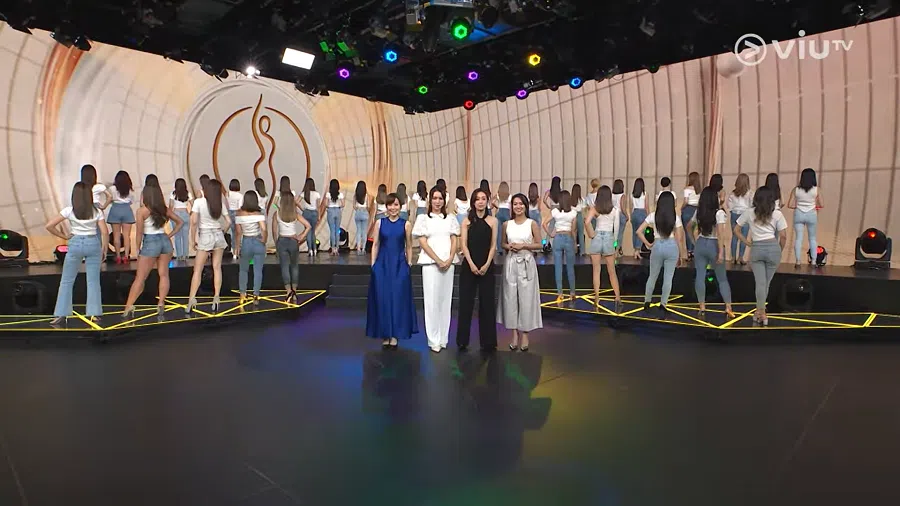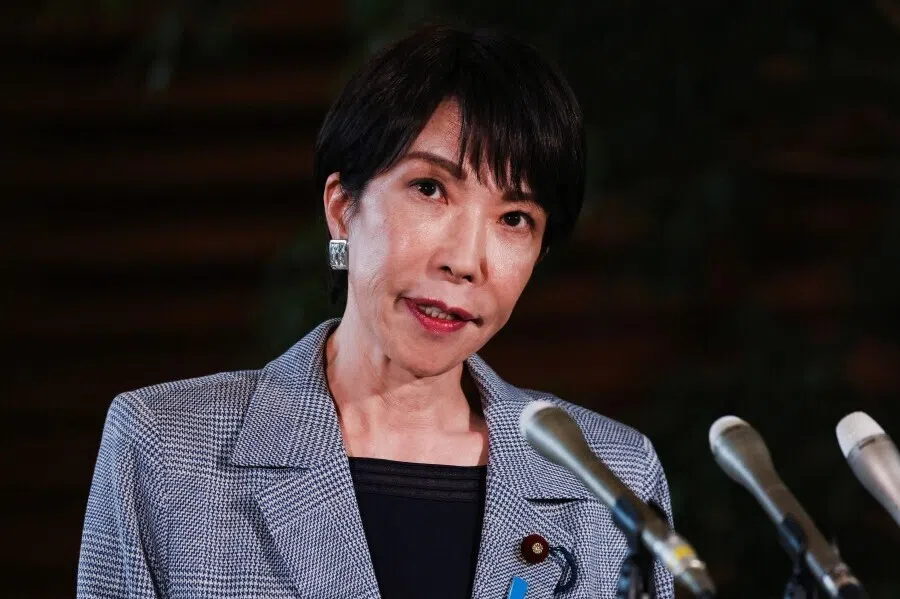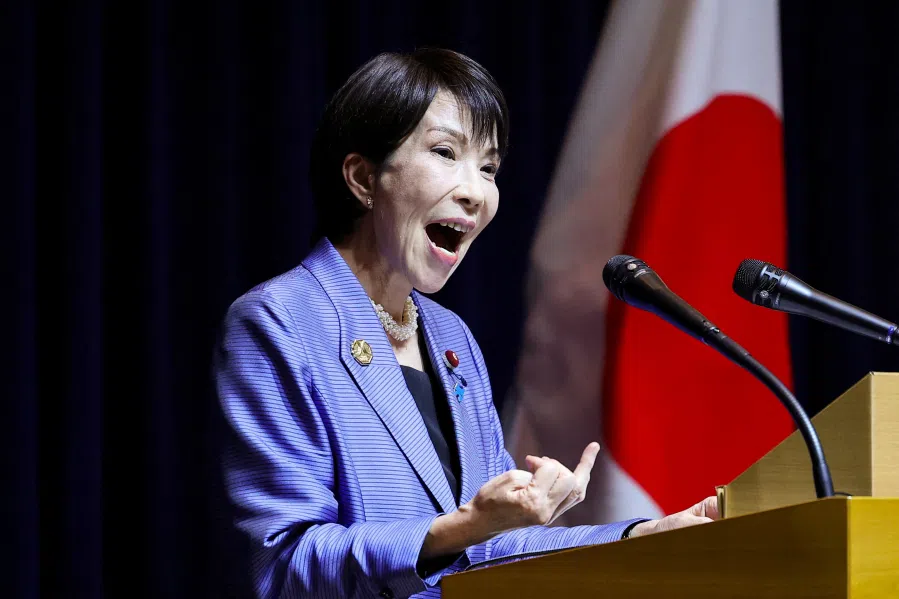Hong Kong’s TV stations jostle for middle-aged market
Lianhe Zaobao journalist Tai Hing Shing notes that as Hong Kong’s economy struggles to recover post-pandemic, various sectors are exploring ways to promote diversified economic development and enhance Hong Kong’s overall competitiveness, in particular the entertainment industry.

In recent years, Hong Kong’s free-to-air ViuTV has launched innovative programmes that have made waves in the community, such as beauty pageant reality shows Beauty And The Best (《造美人》) and Miss Mask Pageant (《口罩小姐》).
The eight-year-old station has come up with another new move in its beauty pageant line-up, Beautiful Life Towards 40 (《美丽40路》), slated for broadcast in early September.
Reality TV for the middle-aged
According to ViuTV’s official website, women aged 35 to 50 years old can sign up to be contestants of Beautiful Life Towards 40, regardless of whether they are single, married or even mothers.
When the station recruited contestants for the programme in February this year, the age requirement quickly sparked heated discussions online, being so different from traditional beauty pageants.
Many netizens have been discussing which “40-something goddesses” in the entertainment industry should participate, reflecting a more inclusive attitude towards the ages of beauty pageant contestants.

This is reminiscent of the 1995 Asia Television (ATV) Miss Asia pageant, which had no age limit. The show was launched by ATV — another free-to-air television station in Hong Kong — to increase viewership. Forty-seven-year-old Kong Suet-fa’s participation drew widespread attention from the Hong Kong media and caused the ratings of that year’s pageant to soar. Despite being eliminated before the finals, she stole the show and made her name.
However, while Hong Kongers’ reaction to Kong’s participation was mostly marked by gossip, curiosity and ridicule, the response to ViuTV’s Beautiful Life has been generally positive. Many netizens have been discussing which “40-something goddesses” in the entertainment industry should participate, reflecting a more inclusive attitude towards the ages of beauty pageant contestants.
Notably, given the wave of declining consumption among young people, the middle-aged market, which has long been excluded from mainstream consumerism, is quietly emerging in Hong Kong.
Many Hong Kongers have worked hard to accumulate wealth in their youth, and have become more financially stable and willing to spend as they enter middle age.
Willing to spend and chase dreams
The severe wealth gap has been a longstanding issue in Hong Kong, but there is still a sizeable number of high-income citizens. According to UBS’s Global Wealth Report, Hong Kong’s per capita wealth ranked third globally at approximately US$582,000 in 2023. Many Hong Kongers have worked hard to accumulate wealth in their youth, and have become more financially stable and willing to spend as they enter middle age.
For example, Mirror, currently the most popular boy band in Hong Kong, has been immensely popular since their debut in 2018, with hundreds of endorsements, events and concerts. It is no exaggeration to say that, apart from the 1990s Four Heavenly Kings (Cantopop stars Aaron Kwok, Andy Lau, Jacky Cheung and Leon Lai), the Hong Kong music scene has not seen such a frenzy in a long time.

Interestingly, Mirror not only has a strong following among young people, but also has a large number of middle-aged female fans. Middle-aged women show up in crowds to support Mirror whenever they make public appearances, and even crowdfund millions of Hong Kong dollars to celebrate the group’s birthday each year.
The best-known among them is 56-year-old Housing Authority director Rosanna Law, who is a die-hard fan of Mirror member Ian Chan and has been spotted attending his events.
To some extent, having many celebrity-chasing middle-aged women in Hong Kong reflects the city’s growing trend towards gender equality, with many middle-aged women achieving success in their careers and having the financial means to support their favourite stars and relive their youthful crushes.
This also highlights the vast market of middle-aged people in Hong Kong, which has become a piece of juicy meat TV stations are vying for.

In fact, Hong Kong’s largest free-to-air television station TVB began actively targeting the middle-aged market two years ago, launching the variety singing competition Midlife Sing & Shine! (《中年好声音》) specifically for Hong Kongers aged 35 or above, breaking the convention that “only young people can participate”.
According to TVB’s concept, many middle-aged people once pursued their dreams of making music but stopped short of becoming singers in their youth due to life and family responsibilities. It was not until their lives became more stable as they reached middle age that they wanted to revive their dreams.
Midlife Sing & Shine! is pegged as “allowing middle-aged people to continue to chase their dreams”, giving them a last chance to pursue their dreams of singing.
Opportunities in the silver economy
Consequently, the two seasons since the launch of Midlife Sing & Shine! were extremely well-received, with throngs of participants signing up over the past two years. The show also sparked a ratings frenzy for TVB, with each competition filled with twists and turns held over six months. Its TV and online viewership and ratings did very well, and advertisers got exceptional brand effect out of it.
Many amateur middle-aged participants of Midlife Sing & Shine! also became overnight sensations due to the show. For example, the first season’s champion, Albert Chau, has held multiple mini autograph sessions and taken on hosting roles.
Hong Kong’s population has aged rapidly, and many see opportunities in the silver economy. However, the potential market scale of the middle-aged group should not be underestimated.

Third-place winner Ramon Lo held a concert last year, with HK$2,800 (US$360) VIP tickets selling out within 88 seconds. During Lunar New Year this year, he performed in Zhongshan — one can imagine his arms tiring from just receiving gifts from enthusiastic fans.
The other finalists of Midlife Sing & Shine! have also seized many performance opportunities. Each singer has a core group of supporters, and their collective appearances at commercial events can energise the venue and attract a significant crowd.
More importantly, Midlife Sing & Shine! achieved significant success with zero celebrity power and at low cost, generating substantial revenue for TVB.
The station has also signed on some of the talented contestants. Most of them already have performance experience, and after some work to boost their overall star image, they can be put on the market to hold concerts and rake in profits for TVB.
In recent years, Hong Kong’s population has aged rapidly, and many see opportunities in the silver economy. However, the potential market scale of the middle-aged group should not be underestimated.
As Hong Kong’s economy struggles to recover post-pandemic, various sectors are exploring ways to promote diversified economic development and enhance Hong Kong’s overall competitiveness. The authorities and business sectors can consider developing the middle-aged market to drive new momentum in Hong Kong’s development.
This article was first published in Lianhe Zaobao as “香港电视台抢攻中年人市场”.





![[Big read] China’s 10 trillion RMB debt clean-up falls short](https://cassette.sphdigital.com.sg/image/thinkchina/d08cfc72b13782693c25f2fcbf886fa7673723efca260881e7086211b082e66c)